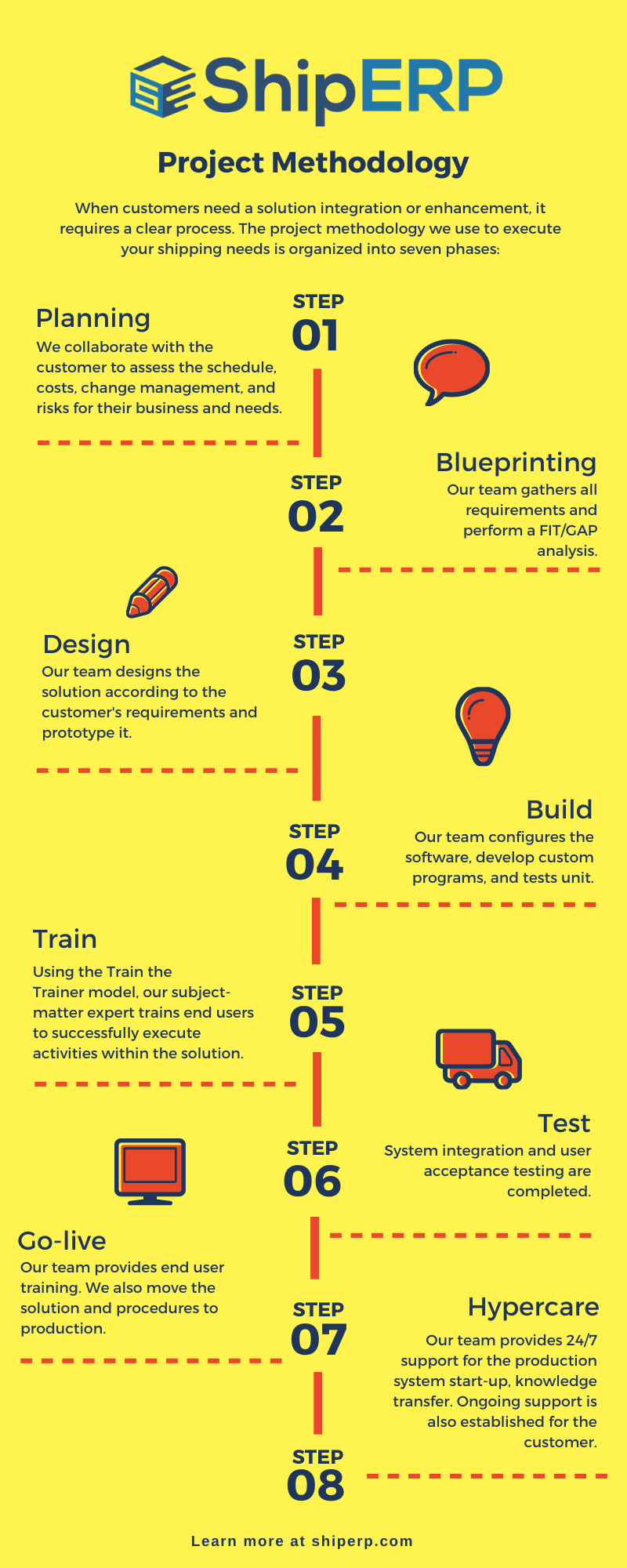Migrating to a new shipping solution can feel intimidating. Thankfully, we at ShipERP consistently follow these steps to help you successfully on-board your solution integrations and enhancements.

Let's recap the eight steps to succeed in your shipping software project with ShipERP!
- Planning: Set your project and your team up for success with in-depth discussions on business requirements, goals, and communication styles.
- Blueprinting: We'll collaborate with you to determine your business requirements and conduct a gap analysis.
- Designing: Our ShipERP team will design the solution to best fit your goals and close the gap between your current and optimal levels of performance.
- Building: We'll move forward with the blueprint and designs to configure the solution. Of course, we'll be testing and receiving your feedback along the way to ensure maximum efficiency.
- Training: Your end-users will receive hands-on training and guided documents to learn how to use the ShipERP software.
- Testing: Let's conduct one last test of the full software solution so you're comfortable using ShipERP on your own!
- Go-Live: It's time to deploy the solution and completely turn over the software to your company.
- Hypercare: Our team is happy to provide any 24/7 assistance when needed!
There you have it! Each step is equally as important to set your software project and team up for success! Curious about putting together the dream team for your projects? Check out our guide to building a successful digital supply chain transformation team. With a strong team, your software project success rate is sure to rise!
Software Project Success in a Nutshell
Each organization executes software projects differently. It all depends on your company's needs, its budget, and the resources it has. Are you interested in transforming your supply chain using this project methodology? If so, we at ShipERP are available to consult with you on your desired outcomes. ShipERP is a fully-configurable SAP shipping software that integrates with over 250 carriers.
